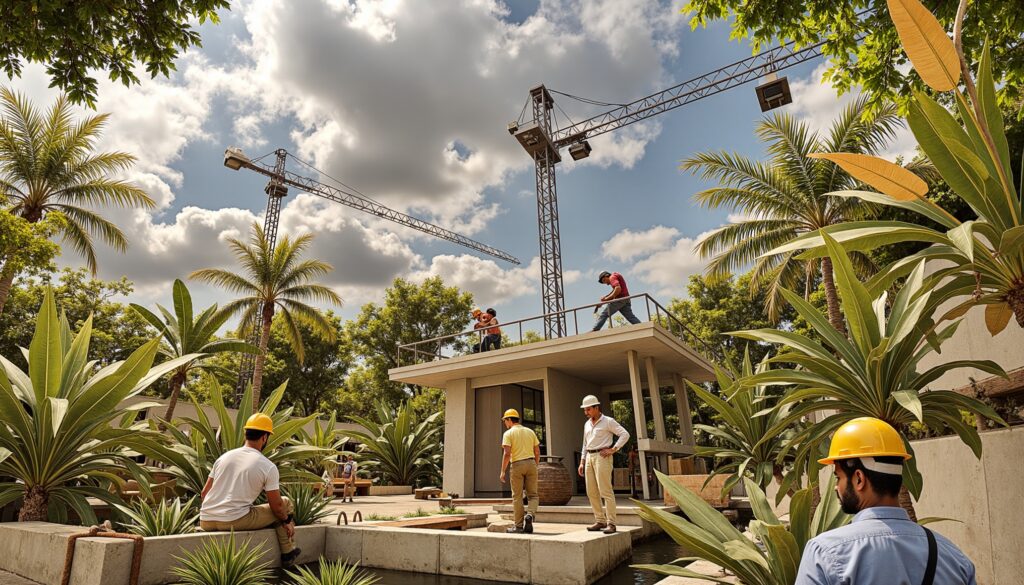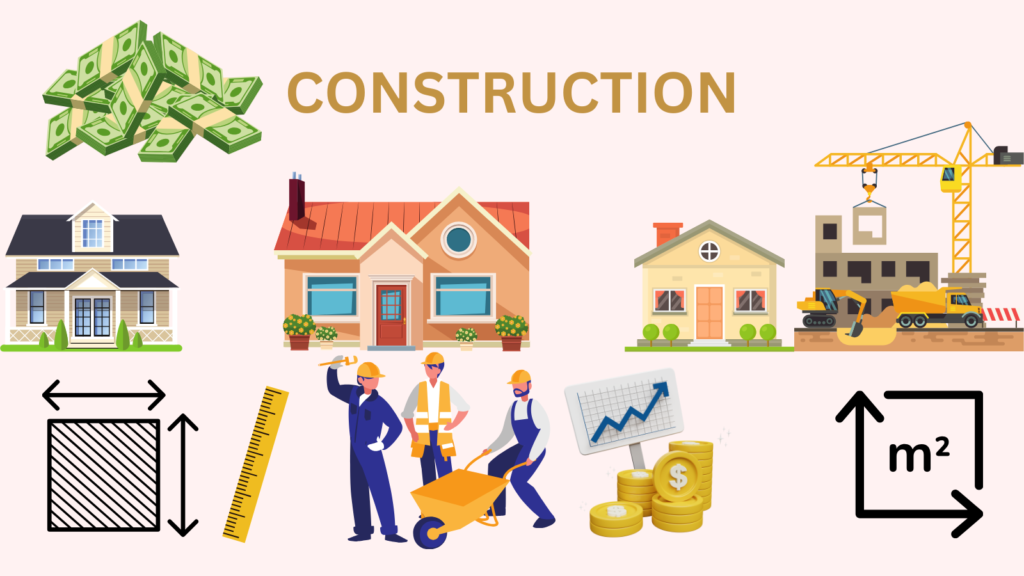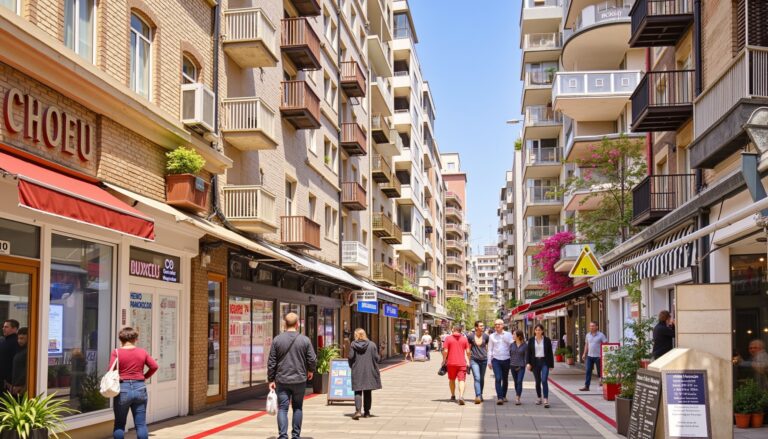When considering a construction project in Costa Rica, understanding the intricacies of construction costs is fundamental for both homeowners and investors.
The beauty of this tropical paradise attracts many to build their dream homes or investment properties, yet the nuances of building costs can be daunting.
This comprehensive guide will delve into various aspects of construction costs in Costa Rica, highlighting essential factors, average pricing, legal frameworks, and practical budgeting tips.
Whether you are a seasoned investor or a first-time homeowner, this guide will equip you with the knowledge needed to navigate through the construction landscape in Costa Rica.

Key Takeaways
- Construction costs in Costa Rica can vary significantly based on location and materials used.
- Key factors influencing construction costs include labor, permits, and site conditions.
- The average costs per square meter differ for residential, commercial, and industrial projects.
- Homeowners should be aware of legal and regulatory requirements that impact construction timelines and costs.
- Effective budgeting and cost management strategies can help avoid financial surprises during construction.
1. Overview of Construction Costs in Costa Rica
When considering a real estate investment in Costa Rica, it’s crucial to understand the various factors that influence construction costs in Costa Rica can vary widely based on location, materials, and labor.
On average, the construction costs in Costa Rica range between $800 to $1,500 per square meter, depending on the quality of materials and the complexity of the design.
Coastal areas, especially those popular among expatriates, tend to have higher construction costs due to the demand for high-end developments, while rural areas may offer more economical options.
Additionally, local regulations and permits can also affect the overall expense, so it’s advisable for potential buyers and investors to conduct thorough research and possibly consult with local experts to get an accurate estimate tailored to their specific project.
2. Factors Influencing Construction Costs
When delving into the construction costs in Costa Rica, several key factors play a significant role.
First, the location of the project is critical; areas near major cities or tourist hotspots often see higher costs due to increased demand and logistical complexities.
Additionally, the choice of materials can drastically affect expenses; opting for locally sourced materials may lower costs, while imported goods can drive prices up.
Labor costs also vary, with skilled labor often being more expensive in urban settings than in rural regions.
Furthermore, environmental regulations and building codes must be adhered to, which can add to the overall construction costs in Costa Rica.
Understanding these factors is crucial for investors and potential homeowners alike, ensuring a well-informed decision when embarking on a construction project.
‘The bitterness of poor quality remains long after the sweetness of low price is forgotten.’ – Benjamin Franklin

3. Average Costs per Square Meter for Different Types of Construction
When exploring construction costs in Costa Rica, it’s essential to understand how pricing varies based on different types of construction.
On average, residential construction costs in Costa Rica can range from $700 to $1,200 per square meter, depending on materials and design complexity.
Basic structures, typically involving traditional methods and simpler materials, tend to be on the lower end of this spectrum.
However, if you opt for high-quality finishes, energy-efficient systems, or contemporary architectural styles, you may find the costs reaching the higher end or even exceeding it.
For commercial developments, the average costs per square meter can vary significantly, averaging anywhere from $1,000 to $2,500, influenced by factors like location, zoning laws, and building regulations.
Understanding these nuances is vital for anyone looking to invest in property or initiate a building project in this vibrant Central American country.
4. Legal and Regulatory Considerations
When exploring the intricacies of the Costa Rica real estate market, understanding the legal and regulatory considerations is paramount, especially for those looking to build or invest in property.
One essential aspect that potential buyers should be aware of is the landscape of construction costs in Costa Rica, which can vary significantly based on location, materials, and local labor.
It’s crucial to engage with local architects and construction professionals who can provide insight into realistic budgets and timelines, as well as navigate any permits and regulations.
Familiarizing yourself with property zonings, environmental laws, and building codes is vital to ensure that your investment is both legally sound and built to high standards.
By meticulously considering these legal and regulatory elements, you can effectively plan for the overall costs associated with construction in Costa Rica, avoiding unexpected challenges and ensuring a smoother project execution.

5. Tips for Budgeting and Cost Management
When embarking on a construction project in Costa Rica, effective budgeting and cost management are paramount to ensure your investment stays on track.
Begin by conducting thorough research on construction costs in Costa Rica, which can vary significantly depending on the location, materials, and labor involved.
To create an accurate budget, itemize all potential expenses—including land acquisition, permits, materials, labor, and unexpected contingencies.
Engage with local contractors or real estate professionals who can provide insights into standard pricing and help you compare bids to avoid overspending.
Moreover, consider local economic factors that may influence construction costs in Costa Rica, such as the availability of materials and seasonal labor fluctuations.
Setting aside a reserve fund for unforeseen circumstances will also help you manage your finances more effectively throughout the construction process.
6. Conclusion: Making Informed Decisions for Your Construction Project
In conclusion, understanding construction costs in Costa Rica is pivotal for anyone planning a construction project in this vibrant country.
With the right knowledge and resources, you can navigate the various factors that contribute to overall expenses, including labor rates, material quality, and regulatory fees.
It’s essential to gather quotes from reputable contractors and consider engaging a local expert who can provide insights into market trends and potential hidden costs.
By making informed decisions based on thorough research and budget planning, you’ll not only ensure a smoother construction process but also maximize your investment in the stunning landscapes and communities that Costa Rica offers.
Frequently Asked Questions
What are the average construction costs per square meter in Costa Rica?
The average construction costs in Costa Rica can vary significantly based on several factors, including location, materials, and type of construction.
Generally, the costs can range from $500 to $1,200 per square meter for standard residential construction.
What factors can affect my construction costs in Costa Rica?
Construction costs in Costa Rica can be influenced by a variety of factors including location, the type of materials chosen, labor costs, design complexity, and compliance with local regulations.
Are there any legal considerations I should be aware of when building in Costa Rica?
Yes, it is important to consider local zoning laws, building permits, and environmental regulations.
Consulting with a local attorney or construction expert can help ensure compliance with all necessary legal requirements.
What tips can help me budget effectively for my construction project in Costa Rica?
To budget effectively, it is crucial to obtain detailed estimates from contractors, account for unforeseen expenses, set aside a contingency fund, and regularly review your budget throughout the construction process.
How can I manage construction costs throughout my project?
Managing costs can involve diligent planning and monitoring of expenses, negotiating fixed-price contracts with contractors, sourcing materials in bulk, and being flexible with design choices to reduce costs.





